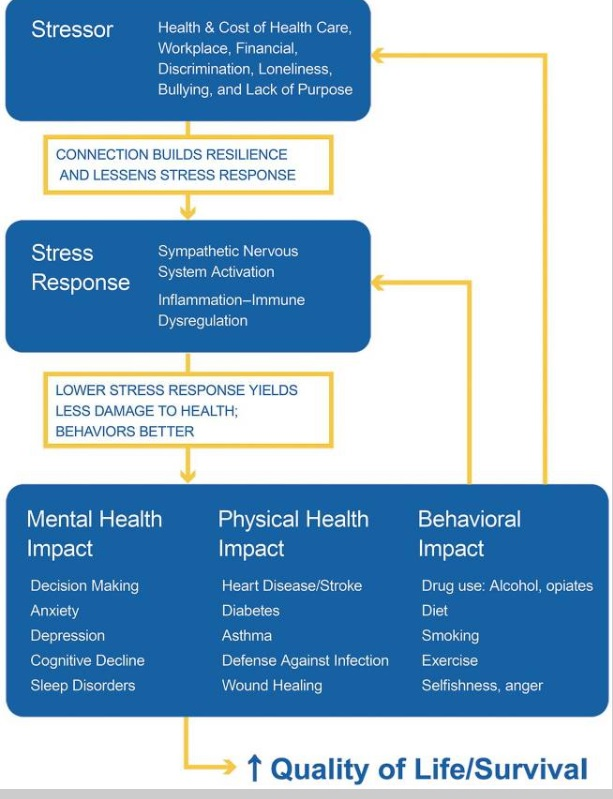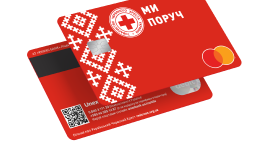Recently, Ukrainian volunteers and charitable organizations have been complaining about the decrease in donations and contributions, comparing the volume of collections with the times of the beginning of the Great War. Some openly reproach, while others simply note this moment with sadness. Unfortunately, this is also noticed in the banks that service the relevant accounts: for example, the National Bank notes this in regular reports on the balance of funds in the special account, which the regulator opened to support the defense forces from February 24, 2022 and collected over UAH 65.2 billion there.
I am sure that Ukrainians have not become callous or greedy. Absolutely not. It is thanks to the best, the bravest, and the kindest that our state is worthily enduring terrible trials and holding on despite everything. Of course, there may be war fatigue and disappointment from the news. However, as a nation, we do not give up. We find the strength to get up every day and walk our path, extending a helping hand to those who need it.
Do a person's good heart and responsible behavior affect the quality of their life? Are there any relationships between kindness (which manifests itself, among other things, in charity) and a person's well-being, self-esteem, and well-being? And if so, how can they be measured? In short, what dividends does kindness bring?

In February, the American non-governmental charitable organization Global Compassion Coalition made an interesting study regarding the impact of kindness and help not so much on its recipients, but on the donors and sponsors of any scale. It is not only about the moral impact, but also about physical health. These are the 10 main benefits of kindness that have interested and can motivate you not to give up, to do good. After all, as wise older people in Ukraine say: “If it’s hard for you, find someone who is even harder, and help: this will allow you to survive your own difficulties easier and with dignity.”
1. Kindness and helping others reduces stress and improves physical health
Kindness creates positive (supportive and meaningful) social connections, which in turn reduce stressor responses and fulfill basic needs that are critical for health and longevity. The general term “kindness” refers to related prosocial emotions and behaviors, such as caring, generosity, altruism, empathy, gratitude, and compassion. Research shows that positive social connections are associated with longevity and reduced mortality, including a 50% reduction in premature mortality.

HERE IS A TABLE with the title Graphic summary of how encouraging positive social connections can affect stress responses
2. Kindness promotes well-being
Regular acts of kindness can significantly boost your own happiness. Giving to others releases endorphins, often referred to as the “helper high,” making generosity a key component of long-term well-being, according to a three-week online pilot experiment among 107 Filipino undergraduate students.
3. Kindness improves mental health
An act of altruism, volunteering helps to combat symptoms of depression and anxiety, shifts a person from personal problems to helping others. It creates a sense of purpose and satisfaction, something 63% of UK adults in a survey agreed with. Kindness can improve feelings of confidence and optimism.
4. Kindness strengthens relationships and builds trust.
Kindness and support from others helps build strong relationships, trust, and deeper emotional bonds. In this case, 91 students participated in a trust game, after which their happiness levels were measured, which was related to the frequency of acts of kindness and their level of trust. The researchers concluded that without prosocial activity, people cannot have much happiness from trust.

5. Kindness promotes longevity
A study by BMC Public Health found that volunteering contributes to longer life expectancy, healthier lifestyles, and reduced anxiety. The survey was conducted among 1,504 adults in Texas (USA).
6. Kindness creates a positive social effect
Even a small act of kindness can bring great benefits. But what is very important is that kindness is contagious. The American Psychological Association concluded that when a person sees an act of kindness, he or she is more inclined to be generous, becoming at least a little kinder. It doesn't have to be something material; often a smile, a compliment, letting a car pass on the road or holding the door for a stranger in a store is enough. When someone treats you well, you will want to do something nice for others.
7. Charity improves cardiovascular health
A study in Health Psychology claims that spending money on other people shapes the health of the cardiovascular system, lowers blood pressure, and can reduce harmful stress hormones in volunteers, donors, sponsors, and patrons. And overall, it improves the physical health of at-risk seniors. The experiments studied the performance of 273 elderly men diagnosed with high blood pressure. And the scale of the effect was compared with taking antihypertensive drugs or exercising.
8. Kindness supports social connections
In a world where loneliness is on the rise, small acts of kindness can help bridge the gap and create stronger, more compassionate communities. In a study by researchers at Ohio State University, people with severe symptoms of depression or anxiety were randomly assigned to do a good deed, engage in social activities, or take part in a brief intervention based on cognitive behavioral therapy (specifically, cognitive reappraisal).
All three interventions were found to reduce symptoms, reduce distress, and increase life satisfaction. However, selfless helping others was shown to have greater benefits for social connections than other activities. When a depressed or anxious person engages in charity or volunteering, they are distracted from their problems and their own symptoms. And this once again confirms the validity of the Ukrainian folk wisdom: “When it’s hard for you, help someone else.”
9. Teaching kindness has a positive impact on students
Helping and volunteering should be taught to children. Research shows that teaching kindness in schools improves students' social and emotional well-being, reduces bullying, and contributes to a more supportive classroom environment. And it is very encouraging that more and more schools are emerging in our country with a culture that cultivates kindness among students and implements volunteering as school projects.

10. Companies with a corporate culture that cultivates kindness have better employees
Kindness can be encouraged by a thriving workplace. Researchers have found that companies with a culture that fosters kindness see higher employee engagement, increased job satisfaction, and higher productivity compared to other companies in the market.
There is a lot to be said about the positive impact of kindness, help, charity and support of others. But the best way to see it is to see for yourself, to take the first step towards kindness. To do good from the heart. And it is even better to do it regularly, at least once a month. After all, it is very simple and possible. Don't know how? Then catch the idea below.
Finally, I will give a short case study of how Unex Bank stimulates acts of kindness and helps to break down any obstacles to doing good, providing an opportunity to do good every month without spending your own money, and doing so with maximum convenience.
In February 2025, Unex Bank and the Ukrainian Red Cross launched the Charity credit card. This kindest credit card in Ukraine allows every Ukrainian to join the charitable projects of the Ukrainian Red Cross and donate every month without spending any of their own money. How does it work? Very simple.
Unex Bank charges 0.5% cashback on all card purchases over UAH 1, including foreign purchases and purchases made using a credit limit. You don’t need to choose any categories, activate cashback – it works automatically. Pay with a card – you get cashback. And at the beginning of each month, all accumulated rewards, excluding taxes, with the client’s prior consent, are automatically sent to the account of the Ukrainian Red Cross. What’s more, the card provides for the accrual of 6% per annum on the balance of your own funds. A quarter of this amount, with the client’s consent, will also be donated to the charity every month.
In addition, a credit limit with a grace period of up to 62 days can be activated on the card. The client chooses whether to use it or not at his own discretion. That is, the card can be used both as a debit card for paying for purchases and as a full credit card.
The Charity card is free to issue and maintain. You can get it online in just 5 minutes or at any Unex Bank branch.
So, if you want positive changes in your life, take your step towards helping others on a regular basis and involve your friends. Get yourself a Charity card and tell people with kind hearts about it.














